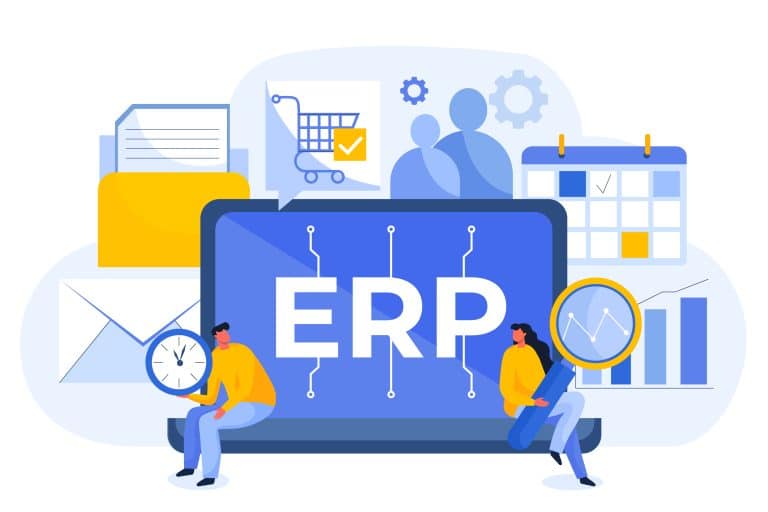NetSuite Inventory Management stands at the forefront of resource optimisation, offering Kiwi businesses the tools they need to stay ahead in a competitive market. How do inventory management systems integrate with other business tools and software? This guide provides a step-by-step approach to integrating NetSuite with a variety of business tools, tailored for the New Zealand market.
The Core of NetSuite Inventory Management
NetSuite Inventory Management is equipped with features designed for seamless integration, crucial for New Zealand businesses looking to streamline their operations. Key features include:
- Inventory Optimisation
- Real-time Inventory Tracking
These features are the backbone for integrating with other systems, ensuring that your inventory data works in harmony with other business processes. For a foundational understanding, see What is an Inventory Management System?
The Strategic Importance of Integration
For Kiwi companies, integrating NetSuite Inventory Management with other business tools is a strategic move. It allows businesses to streamline operations, enhance business process automation, and improve data accuracy. This leads to more informed decision-making and operational efficiency. Discovering the Five Key Reasons You Need Better Inventory Management can provide deeper insights into the strategic benefits of this integration.
Tools That Integrate Well with NetSuite
NetSuite’s Inventory Management system integrates with a variety of tools, each serving a unique function within the New Zealand business ecosystem. Below is a table that outlines some of the key tools, their functions, and the benefits of integration:
| Business Tool Type | Function | Integration Benefit with NetSuite |
| CRM Systems | Manage customer data and interactions | Enhanced customer insights through shared data |
| SCM Tools | Streamline supply chain operations | Improved supply chain efficiency and reduced costs |
| E-commerce Platforms | Manage online sales and retail operations | Unified sales data for better inventory forecasting |
| Financial Software | Handle accounting and financial reporting | Streamlined financial processes and real-time reporting |
| Business Intelligence Tools | Analyse data to make informed decisions | Data-driven decision-making with integrated analytics |
This table demonstrates how NetSuite Inventory Management can provide a cohesive and efficient workflow when integrated with these essential business tools. For a deeper understanding of how financial insights can be enhanced when integrated with NetSuite, explore NetSuite’s Approach to Inventory Accounting and Valuation.
The Integration Process Explained
How does NetSuite’s Inventory Management System integrate with other tools? The process involves:
- Utilising NetSuite API for connectivity.
- Ensuring Data Synchronisation with NetSuite for real-time accuracy.
- Implementing Custom Workflow Automation to tailor the system to unique New Zealand business needs.
This process is crucial for maintaining data integrity and providing a single source of truth across your business systems. Explore The Powerful Insights Uncovered by Inventory Management Reporting for an in-depth look at the benefits of integration.
Best Practices for NetSuite Integration
For a successful integration of the NetSuite ERP System, it’s crucial to follow best practices. These include ensuring data consistency across all systems, regularly testing the integration to identify and resolve issues, and training staff to effectively manage the integrated system. These steps are vital for maximising the benefits of NetSuite and avoiding common pitfalls. Understanding the implications of Cloud vs On-Premises: Choosing the Right Inventory Management Solution can further guide your integration strategy in New Zealand.
Troubleshooting Common Integration Issues
Integrating NetSuite can come with challenges. Common issues include:
- Data silos
- Synchronisation errors
- Scalability concerns
Solutions involve proactive monitoring and engaging with experienced NetSuite partners for support. Gain insights on Managing Stock Challenges with NetSuite: Out-of-Stock Scenarios and Backorders to preemptively address common integration challenges in the New Zealand context.
Looking Ahead: The Future of Integrated Inventory Management
The future of NetSuite Software and its integration capabilities is poised for exciting advancements, with potential benefits for New Zealand businesses. Expect innovations in AI-driven inventory management and enhanced ERP integration features. These developments will not only streamline inventory management processes but also open new avenues for business growth and efficiency. Keeping up with these trends is crucial, and reading about The Cost-Benefit Analysis of NetSuite Inventory Management Solutions can help businesses prepare for what’s ahead.
Conclusion
Integrating NetSuite Inventory Management with other business tools is essential for modern New Zealand businesses. It streamlines operations, enhances data accuracy, and supports informed decision-making. Reflect on How Efficient Inventory Management Boosts Customer Loyalty to appreciate the end goal of integration.
Ready to integrate your Inventory Management Systems with NetSuite? Take the next step and discover how Jcurve Solutions can assist with your NetSuite Inventory Management Integration. Visit us at Jcurve Solutions for more information. For businesses ready to scale, “Scaling Up: How NetSuite Adapts to Growing Inventory Needs” provides a glimpse into the future of inventory management with NetSuite, tailored for the Kiwi market.










